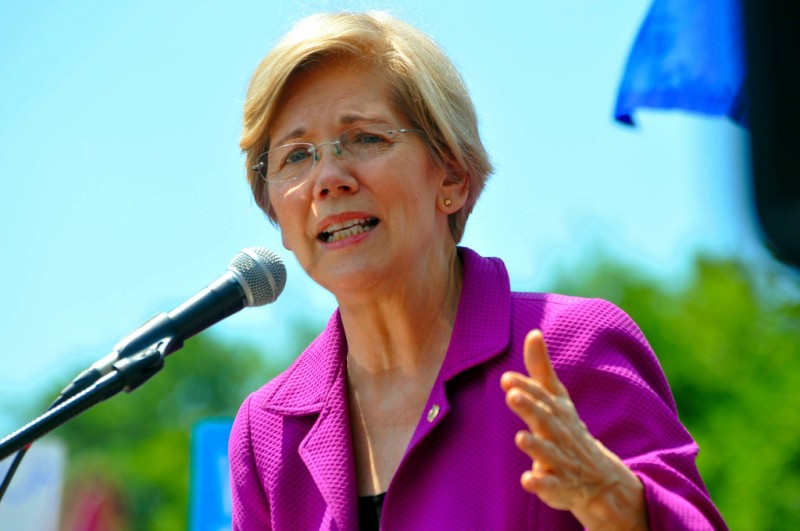Warren’s plan, which she referred to as “the most ambitious anti-corruption legislation proposed in congress since Watergate,” is evidence of an anti-corruption platform trend that is spreading throughout democrats’ senate campaigns.
Warren introduced the Accountable Capitalism Act to the Senate last week. In her speech on Tuesday, she situated the proposal in what she sees as America’s declining faith in democracy.
Compared to 1953, when 73 percent of Americans said that they trusted the federal government to do the right thing all the time, or at least some of the time, today, that has been reduced to 18 percent.
“Not even one in five Americans today trust their government to do the right thing,” Warren said.
"People don't trust their government to do right because they think government works for the rich, the powerful and the well-connected, and not for the American people," she said. "And here's the kicker: They're right."
She cites Commerce Secretary Wilbur Ross who maintained partial ownership of at least four different companies, one of which was tied to Russian oligarchs, during 2017. And then profited off the exposure of the scandal by short selling a stock in a Kremlin-linked company so that he could make money when the prices dropped. She also mentions how EPA administrator Scott Pruitt resigned over a corruption scandal only to be replaced by a former coal lobbyist.
“Overtime, bit-by-bit, like a cancer eating away at our democracy, corruption has eroded americans faith in our government,” she said.
Warren’s legislation focuses on six central reforms that aim to get rid of loopholes that allow people in power to line their pockets, reduce campaign financing, increase transparency, and establish agencies that target corruption and help give a louder voice to the public.
The reforms include putting an end to foreign lobbying and banning lobbyists from donating to candidates, establishing a new Office of Public Advocate to represent the public interest and an anti-corruption agency, encouraging more diversity in the Supreme Court, and introducing a live streaming audio of all federal appellate court proceedings.
Though she was introduced as someone who is considered to be a 2020 presidential contender, Warren insists she is not running for President, but for Senate in 2018. And she joins several other democratic candidates in the anti-corruption sentiment.
Earlier this month, Andrew Gounardes, who is looking to unseat a long time Brooklyn state senator, attacked the incumbent for spending hundreds of thousands of campaign funds at his family’s catering hall. Another democrat running in a predominantly republican district in upstate New York is challenging Republican Incumbent Chris Collins after he pled not guilty to charges of fraud, conspiracy, and lying to investigators.
“This is deliberate,” Warren said.” And we need to call it for what it is: Corruption. Plain and simple. Corruption has seeped into the fabric of our government.”
Warren believes that these reforms will force american businesses that engage with the government to represent more than just the wealthy and the powerful.
“We can do this,” she said. “And when we do, we will restore the faith of the american people, not just in government but in democracy as well”






